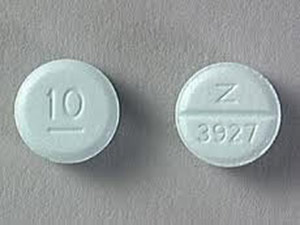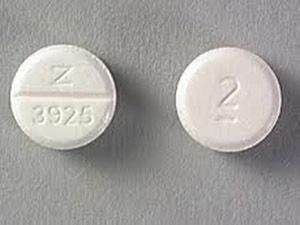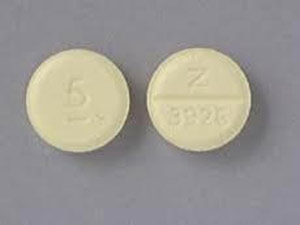Showing all 3 results
-

Diazepam 10mg
Price: $289.00 Select Pills -

Diazepam 2mg
Price: $274.00 Select Pills -

Diazepam 5mg
Price: $279.00 Select Pills
What is Diazepam?
Diazepam belongs to the benzodiazepine medication class that acts as an anxiolytic to treat certain mental illnesses, Alcohol withdrawal, and mood or behavioral disorders. It is an FDA-approved drug, and therefore, the health authorities have taken control over the production, distribution, and medicine supply.
You can either buy Diazepam online or offline if you have a proper prescription from a doctor because buying or selling Diazepam without an appropriate prescription from a doctor is an act of criminal depravity under the law, and authorities may hold you liable if you do so.
Why is Diazepam used for and how does it work?
Diazepam is a benzodiazepine medication that works on the brain and nervous system to treat and manage certain mental illnesses such as anxiety, seizures, alcohol withdrawal syndrome, benzodiazepine withdrawal syndrome, muscle spasms, insomnia, restless legs syndrome, etc.
It basically increases the functioning of GABA receptors in the brain.
How should it be taken?
Take Diazepam as your health expert directs you. Never use it more often than prescribed. Consult your doctor if you are getting addicted to the medicine.
It is advisable never to share your medicine with anyone who has a history of drug abuse and addiction. Misuse, abuse, and addiction to medication can be fatal.
Please consult your doctor before taking other pain medication simultaneously with Diazepam.
Avoid medical errors and report to your doctor if you are not observing any improvement in your health condition.
Sudden withdrawal of the medicine can be risky. Please consult your doctor before leaving the treatment; he will gradually decrease your medicine dose to avoid Diazepam’s withdrawal symptoms.
Keep your medicine safely under the suggested atmospheric condition and dispose of the leftover medicine once you have completed the treatment.
How much should it be taken?
Diazepam is a prescription medication for treating certain mood or behavioral disorders and mental illnesses. The Diazepam dosage will vary from patient to patient. Please follow your doctor’s advice or directions on the label.
Your doctor will initiate your treatment with the medicine’s minimum possible dose and gradually adjust your medicine dosage according to your health condition. To determine the best suitable dosages for you, your doctor should examine you thoroughly. Your doctor will recommend Diazepam dosage keeping the following factors in mind:
- Age of the patient
- Weight of the patient
- The medical condition of the patient
The following are the usual Diazepam dosage that your doctor can prescribe you:
In the form of oral tablets
Dosage for treating and managing anxiety
- For older adults (65 years and above)
2 mg to 2.5 mg of the medicine once or twice a day.
- For adults (age between 18 to 65 years)
2 mg to 10 mg of Diazepam tablets, three to four times a day
- For children (age between six months to 17 years)
1 mg to 2.5 mg of the medicine, three to four times a day
- For children (below six months)
Using Diazepam tablets for patients below six months is not recommended.
Dosage for treating acute alcohol withdrawal
- For older adults (65 years and above)
2 mg to 2.5 mg of the medicine, orally, once or twice a day
- For adults (age between 18 to 65 years)
10 mg of the medicine, orally, three to four times a day.
- For children (age between six months to 17 years)
1 mg to 2.5 mg of the medicine three to four times a day
- For children (below six months)
Using Diazepam tablets for patients below six months is not recommended.
Dosage for treating muscles spasm
- For older adults (65 years and above)
2 mg to 2.5 mg of the medicine once or twice a day.
- For adults (age between 18 to 65 years)
1 mg to 1.5 mg of the medicine, orally, three to four times a day.
- For children (age between six months to 17 years)
1 mg to 2.5 mg of the medicine three to four times a day
- For children (below six months)
Using Diazepam tablets for patients below six months is not recommended.
Dosage for treating seizures in people with epilepsy
- For older adults (65 years and above)
2 mg to 2.5 mg of the medicine once or twice a day
- For adults (age between 18 to 65 years)
2 mg to 10 mg of Diazepam tablets, three to four times a day
- For children (age between six months to 17 years)
1 mg to 2.5 mg of the medicine, three to four times a day
- For children (below six months)
Using Diazepam tablets for patients below six months is not recommended.
What precautions should you take while taking Diazepam?
Diazepam is a habit-forming and highly addictive medicine; please consult your doctor before using it. It can adversely affect your health if taken inappropriately. You can easily order Diazepam online via a legitimate online pharmacy and use it as per your doctor’s prescription. However, you should always take care of the following precautions while using Diazepam:
- It is a prescription medicine; using it without consulting your doctor can be dangerous.
- You should avoid taking Diazepam if you are allergic to it or any of its components or similar medicines.
- Taking Diazepam can adversely affect your health if you have breathing disorders, weak muscles, narrow-angled glaucoma, liver disorders.
- Your doctor will not allow you to take Diazepam if you have the following health disorders or a history thereof:
- Glaucoma
- Kidney or liver infections
- Chronic obstructive pulmonary disorder (COPD)
- Asthma or other breathing issues
- Mood or behavioral disorders
- Mental illness
- Epilepsy
- Seizure or convulsions
- You can not take Diazepam if you are pregnant or breastfeeding; it can harm your child and make your baby dependent on the drug.
- Remember that taking Diazepam is only a part of the treatment; please follow your doctor’s advice to make medicine more effective.
- Avoid taking Diazepam if you are an alcoholic or drug addict.
- Ask your physician about all other necessary precautions that should be taken while using Diazepam, and consult your health expert to learn more about the Diazepam benefits and risks.
Diazepam side effects
Diazepam can cause you certain side effects; please observe your health. You can experience the following side effects after using it:
- Drowsiness
- Muscle weakness
- Inability to control muscle movements (ataxia)
- Tremor
- Dizziness
- headache
- Constipation
- Dry mouth or excessive saliva
- Nausea
- Fatigue or tiredness
Though these common side effects don’t need much medical attention, you should consult your doctor ASAP if they bother you too much or are unbearable.
Please stop taking medicine and tell your doctor if you experience the following health issues:
- Worsening of seizures
- Unexpected reactions
- Liver problems
- Bladder problems
- Increase or decrease in sex drive
- Any other severe allergic reaction to the medicine
Withdrawal symptoms
Please don’t stop taking Diazepam out of a sudden; otherwise, you may experience the following withdrawal symptoms:
- Tremor
- Abdominal or muscle cramps
- Unusual sweating
- Convulsions or seizures
Please ask your physician before leaving the medicine. Your doctor will gradually decrease your medicine dose to avoid life-threatening withdrawal symptoms.
What to do if an overdose happens?
Diazepam can adversely affect you if taken in excess. It can cause you the following overdose symptoms:
- Drowsiness
- Loss of balance
- Loss of coordination
- Weak muscles
- Slow or shallow breathing
- Coma
You should consult your doctor ASAP if an overdose happens. You can also seek emergency medical assistance by calling the Poison helpline at 1-800-222-1222.
Can Diazepam interact with other medicines?
The medicines that can interact with Diazepam are as follows:
- Acid-suppressant or antacids
- Cold and allergy medications
- Antidepressants
- Antifungal medicines
- Antipsychotic drugs
- Anti-anxiety medications
- Medications used for treating motion sickness
- Anti-seizure medication
- Pain killers
- Sleeping pills
- Medicines to treat tuberculosis
These medicines can interact with Diazepam and make the treatment less effective or increase some severe side effects. Therefore, please tell your doctor about all the drugs and therapies you are currently taking.
Other things you should avoid while using Diazepam
Consuming alcohol and grapefruit together with Diazepam is not safe; it can adversely affect your health.
Avoid taking herbal products, over-the-counter medicines, vitamins, and other nutritional supplements simultaneously with Diazepam.
Be careful; it can cause dizziness or drowsiness and impair your thinking and reactions. Please don’t drive or operate machinery while using Diazepam.